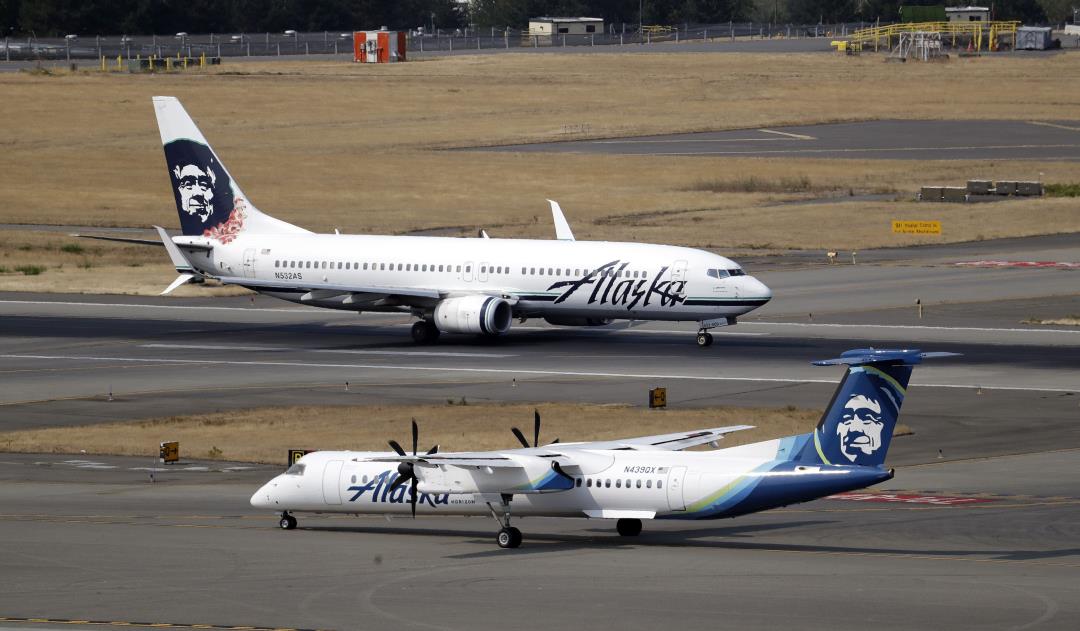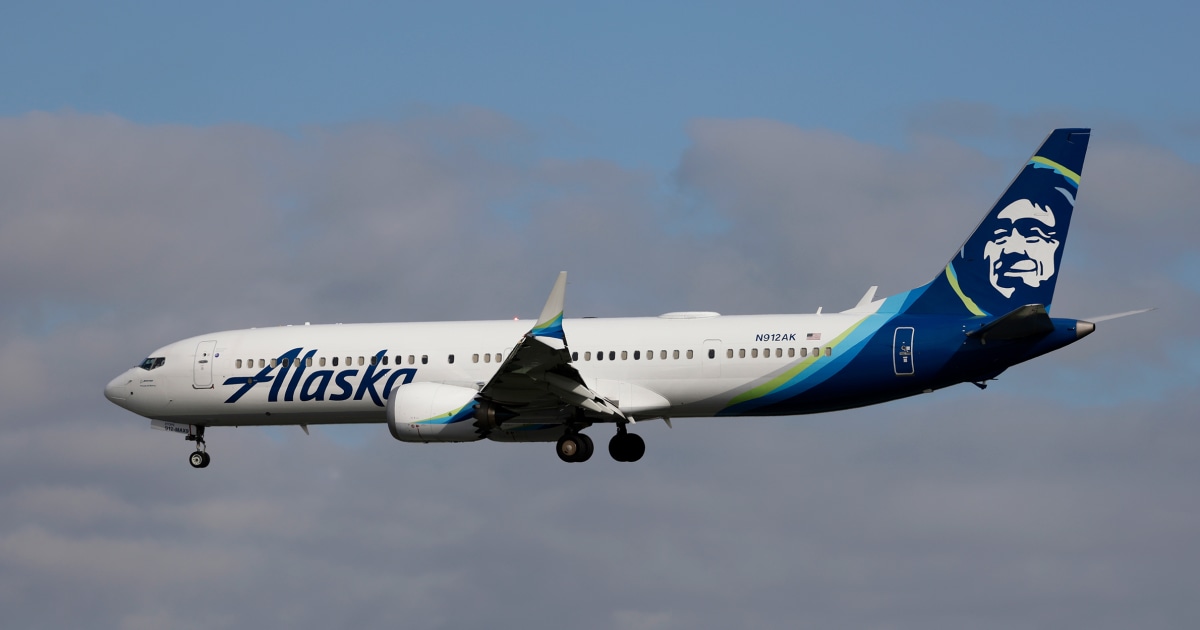An Alaska Airlines flight on Christmas Eve from Anchorage to Fairbanks was forced to turn around after an eagle hit the plane.
On Sunday, a major plane crash at a South Korean airport that killed 179 people and left just two survivors is also believed to have been caused by a bird strike — meaning a collision between a bird and an aircraft.
Alaska Airlines flight 2041 had taken off from Ted Stevens Anchorage International Airport at 11:40 a.m. local time on Dec. 24, but turned around and returned about 30 minutes later, according to FlightAware data. That flight typically takes about an hour.
Passenger Michelle Tatela was visiting from Chicago when the incident happened.
“We’re in the air, and after a few minutes, we were told we were turning back around out of an abundance of caution, to come back to Anchorage,” she told NBC affiliate KTUU of Anchorage.
When the plane landed back in Anchorage, she said passengers learned that a bird strike involving an eagle was behind the sudden return.
“The eagle survived at that time,” Tatela told the station. “And there were a bunch of police cars around the plane. Normally, it would be a scarier situation, but knowing that it was a bird … and then they said the eagle was going to the eagle hospital, and he had a broken wing.”
However, the eagle’s wing damage was too great for rehabilitation and it was euthanized on arrival, Bird Treatment and Learning Center Executive Director Laura Atwood said, KTUU reported.
“Everybody was really excited that they said the eagle had been removed and he was going to the sanctuary,” Tatela said. “We’re hoping for a happier ending for the eagle, but it is a jet, so there’s that.”
She and other passengers were put on another flight to Fairbanks.
An Alaska Airlines spokesperson told the station that no emergency was declared and that the captain and first officer are trained for situations like a bird strike. NBC News has reached out to the airline for further comment.
The spokesperson added that the aircraft was removed from service for inspection and has since been returned to service.
In the case of Sunday’s plane tragedy in South Korea, the pilot of Jeju Air Flight 2216 had declared mayday after issuing the bird strike alert, said Joo Jong-wan, director of the Aviation Policy Division at South Korea’s Ministry of Land, Infrastructure and Transport.
The plane skidded off the runway while landing at Muan International Airport, about 180 miles south of Seoul, and burst into flames after crashing.
Joo said the plane was completely destroyed by the ensuing fire and a full investigation, that could take six months to three years, will take place.
The National Transportation Safety Board is leading an American team, including Boeing and the Federal Aviation Administration, that will assist South Korea in investigating.





















/cdn.vox-cdn.com/uploads/chorus_asset/file/25672934/Metaphor_Key_Art_Horizontal.png)



/cdn.vox-cdn.com/uploads/chorus_asset/file/24982514/Quest_3_dock.jpg)


